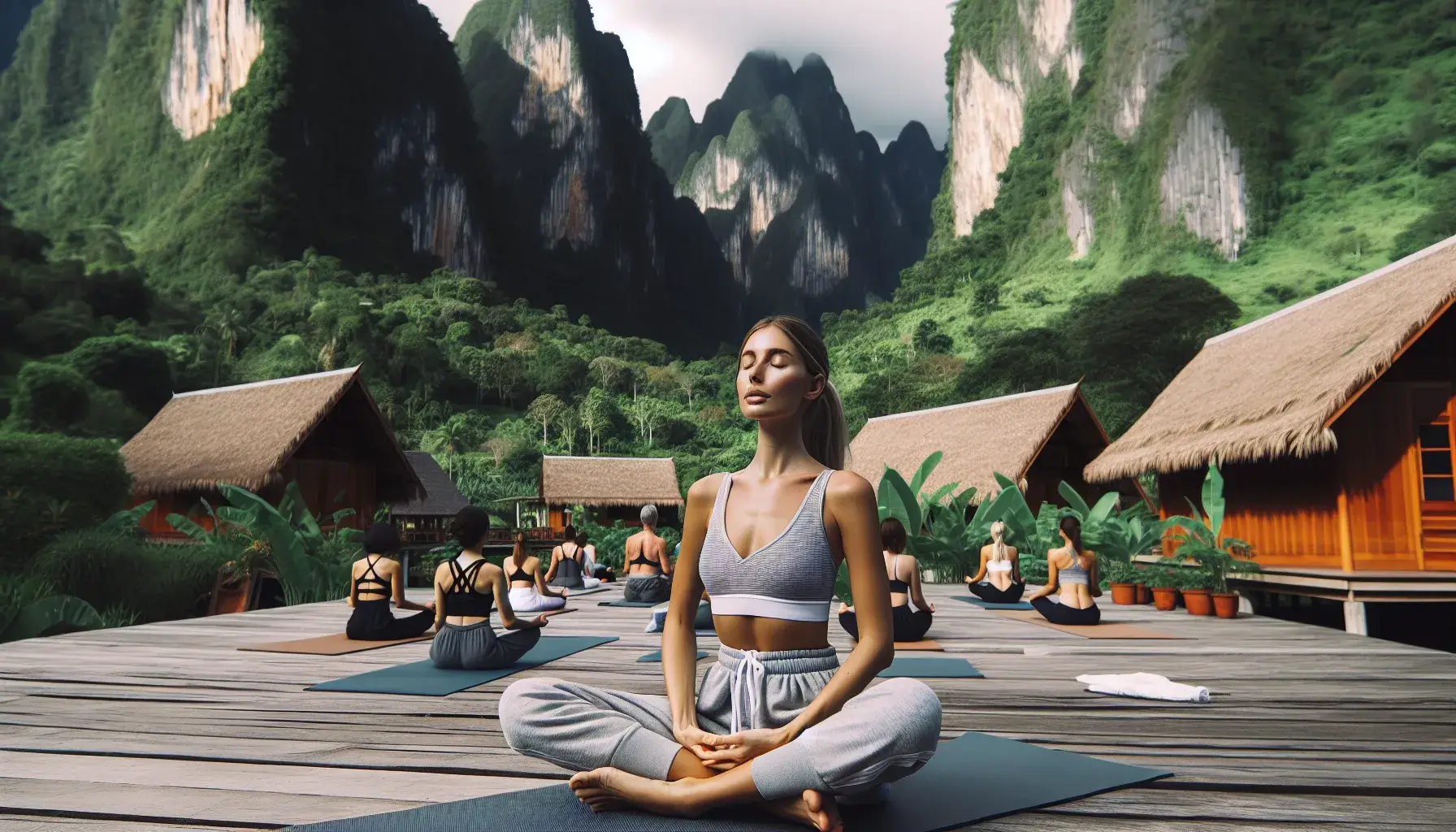For many travellers, the allure of vibrant party hostels can be hard to resist. However, as the desire for a more peaceful escape grows, a shift towards quieter accommodations becomes essential. This playbook offers a seamless transition from the lively atmosphere of party hostels to the serene comfort of tranquil stays, ensuring a stress-free experience for those seeking solace.
Sober travellers often find themselves craving a restful environment, free from the chaos of nightlife. With the right strategies and insights, making this switch can be both easy and enjoyable. Discover how to navigate this change and embrace the calm that awaits in quieter lodgings, allowing for rejuvenation and exploration without the noise.
Overview of the Playbook
Transitioning from a party hostel to a quiet accommodation involves several essential strategies. This playbook provides effective methods for travellers seeking serenity without sacrificing the adventure.
Choosing the Right Accommodation
- Research Locations: Identify neighbourhoods known for their calm environment. Areas away from nightlife hubs often provide quieter options.
- Review Ratings: Look for high ratings on platforms like TripAdvisor or Booking.com for noise levels and restful stays.
- Check Amenities: Prioritise places offering soundproof rooms and tranquillity-focused amenities such as quiet lounges and gardens.
Booking Tips
- Communicate Preferences: Specify a quiet room when booking. Direct communication with hotels can yield better room placements.
- Consider Off-Peak Seasons: Choose to travel during low-demand periods, which often result in less crowded, quieter accommodation.
- Select Smaller Establishments: Opting for boutique hotels or guesthouses often ensures a more tranquil atmosphere compared to larger, busier hostels.
Activities for a Calm Experience
- Engage in Daytime Exploration: Participate in daytime activities such as hikes or museum visits to fully enjoy the peaceful setting.
- Join Quiet Groups: Look for sober-friendly meetups or guided tours tailored to travellers seeking tranquillity.
- Utilise Downtime: Use free time for relaxation techniques like reading or meditation, enhancing a restful atmosphere.
Sober-Friendly Considerations
- Seek Non-Party Activities: Find local events or workshops centred around art, culture, or wellness that do not involve nightlife.
- Connect with Like-Minded Travellers: Join forums or online groups focusing on sober travelling for tips and shared experiences.
- Plan Healthy Meals: Identify restaurants that offer nourishing, light options to maintain energy levels without the excitement of nightlife venues.
This playbook assists in making the switch with minimal stress, promoting an enriching and rejuvenating travel experience.
Benefits of Switching to a Quiet Stay
Switching to a quiet stay offers numerous benefits for travellers seeking peace and tranquillity. This approach ensures a restorative experience amidst the often chaotic travel environment.
Enhanced Relaxation
Enhanced relaxation emerges as a significant benefit of quieter accommodations. Tranquil environments reduce stress levels, enabling better mental clarity and emotional well-being. Key features that promote relaxation include:
- Serene locations: Choose places surrounded by nature or away from busy tourist areas.
- Meditation areas: Look for accommodations that offer dedicated spaces for mindfulness practices.
- Calming aesthetics: Seek establishments with soothing colours, comfortable furnishings, and natural light.
- Quiet zones: Verify the availability of specific areas designed for relaxation or reading.
Incorporating these elements into travel plans maximises relaxation opportunities.
Improved Sleep Quality
Improved sleep quality is another notable advantage of selecting quieter lodgings. A peaceful setting leads to better rest, positively impacting overall health. Factors influencing sleep quality include:
- Noise reduction: Opt for rooms positioned away from common areas and street noise.
- Comfortable bedding: Investigate accommodations that provide high-quality mattresses and pillows.
- Darkness: Choose accommodations equipped with blackout curtains to enhance sleep quality.
- Consistent schedules: Maintain a regular sleep routine, informing hosts of preferences for quiet hours.
Focusing on these aspects ensures a restful night, setting a positive tone for the next day’s adventures.
Key Strategies for Transitioning
Transitioning from a party hostel to a quiet stay involves careful planning and specific strategies aimed at enhancing the travel experience. Implementing the following strategies ensures a smooth shift to more tranquil accommodations.
Setting Expectations
Setting clear expectations prepares travellers for a quieter environment. Understanding that the pace will differ from party hostels helps ease the transition. Consider these elements:
- Focus on relaxation goals, emphasising rest, peace, and recovery.
- Establish a daily rhythm, incorporating time for unwinding and reflection.
- Acknowledge potential boredom; plan engaging, sober-friendly activities, such as local tours or nature walks.
These steps create a balanced mindset, encouraging travellers to enjoy quieter environments while embracing opportunities for exploration.
Choosing the Right Accommodation
Choosing suitable accommodation forms the foundation for a restful experience. Focus on these factors when selecting a quiet stay:
- Research locations known for their serene environments, such as countryside areas or culturally rich cities.
- Review ratings and feedback specifically highlighting noise levels, ensuring a serene atmosphere during the stay.
- Opt for smaller establishments, such as boutique hotels or guesthouses, which often provide a more peaceful setting compared to larger chains.
Prioritising amenities that promote tranquillity is essential. Features like soundproof rooms, pleasant gardens, and wellness facilities significantly enhance the experience, enabling relaxation and rejuvenation.
Personal Experiences and Testimonials
Many travellers seeking quieter accommodations report significant benefits from their experience. They highlight the difference it makes to choose peace over noise during their travels. Feedback from those who transitioned from party hostels to serene stays includes the following insights:
- Enhanced Sleep Quality: Travellers who have moved to quieter lodgings note improved sleep due to reduced noise levels. Properties advertised with soundproofing or located away from busy streets frequently receive positive comments for promoting restful nights.
- Increased Relaxation: Individuals remark on how calming environments enhance relaxation. Features like natural surroundings, soft lighting, and dedicated quiet zones contribute to stress reduction and mental clarity.
- Sober-Friendly Activities: Many find joy in engaging with sober-friendly groups during their stays. They recommend joining local community events, yoga classes, and wellness workshops as excellent alternatives to nightlife, fostering connections that align with a calmer lifestyle.
- Strategic Accommodation Choices: Guests recommend researching and reading reviews focused on noise levels and the tranquillity of facilities. Prioritising smaller hotels or boutique lodgings often leads to a more peaceful environment.
- Active Daytime Exploration: Travellers suggest exploring nature trails, museums, and cultural sites during daylight hours. Engaging in daytime activities helps keep energy levels high and encourages a fulfilling experience devoid of late-night distractions.
- Wellness Amenities: Many prefer establishments that offer wellness options, such as spas or fitness centres, integrating health-focused choices into their stay. Guests highlight that these facilities contribute positively to overall well-being.
By considering these suggestions and testimonials, individuals can navigate the transition from party hostels to peaceful stays successfully, ensuring a serene travel experience.
Key Takeaways for Securing a Quiet and Restful Stay
- Identify Serene Locations: Research neighbourhoods that are away from nightlife hubs to find quieter accommodation options for a peaceful stay.
- Communicate Preferences: When booking, explicitly request a quiet room to improve chances of a restful environment.
- Opt for Smaller Establishments: Choose boutique hotels or guesthouses, which typically provide a more tranquil atmosphere than larger hostels.
- Engage in Daytime Activities: Focus on exploring local attractions during the day to maintain energy levels and fully enjoy the calm setting without the distractions of nightlife.
- Embrace Relaxation Techniques: Incorporate practices like meditation or reading during downtime to enhance relaxation and rejuvenation throughout your stay.
- Connect with Like-Minded Travellers: Engage with sober communities or find local sober-friendly activities to create a fulfilling travel experience without the chaos of parties.
Conclusion
Embracing a quieter stay can transform a travel experience into one of rejuvenation and discovery. By prioritising peaceful accommodations and engaging in serene activities, travellers can enhance their overall well-being. The transition from lively party hostels to tranquil lodgings opens up new avenues for exploration and relaxation.
Focusing on the right strategies ensures a seamless shift that caters to personal preferences. With the right approach, individuals can enjoy the best of both worlds—adventure and tranquillity—creating a fulfilling journey that nurtures both body and mind. The benefits of improved sleep quality and reduced stress are just the beginning of a rewarding travel experience.
Frequently Asked Questions
What is the trend among travellers regarding accommodations?
The trend is shifting towards quieter accommodations, as more travellers seek peaceful environments instead of lively party hostels. This appeal is particularly strong among sober travellers looking for restful stays away from nightlife noise.
Why do travellers prefer quieter accommodations?
Quieter accommodations provide enhanced relaxation, improved sleep quality, and lower stress levels. They allow travellers to explore without the disturbances and chaos often associated with nightlife.
How can I find peaceful places to stay?
Research locations known for calm environments, read reviews focused on noise levels, and prioritise amenities that promote tranquillity. Smaller hotels or guesthouses often provide a quieter atmosphere.
What tips can help in booking quiet rooms?
Communicate your preference for quiet rooms when booking, travel during off-peak seasons, and choose smaller establishments. These strategies significantly increase your chances of enjoying a peaceful stay.
Looking for more sober travel inspiration? Find your next adventure on our Homepage.
What activities are recommended for sober travellers?
Engaging in daytime activities such as nature exploration, community events, or wellness workshops can provide fulfilling alternatives to nightlife. Joining sober-friendly groups also enhances the travel experience.
What benefits do quieter accommodations provide?
Quieter accommodations lead to enhanced relaxation and better sleep due to factors such as noise reduction, comfortable bedding, and serene environments. This, in turn, promotes mental clarity and overall well-being.
How do personal experiences support the shift to quiet stays?
Many travellers report improved sleep and relaxation after switching to quieter accommodations. They recommend sober-friendly activities and strategic accommodation choices as key factors in creating a fulfilling travel experience.

Quit drinking on 23 July 2021 after a two-day bender and swapped bars for border crossings and 12-step meetings. Three sober years, 36 countries, 113 travellers (totally dry), fuelled by street food, jelly babies, and a broken Google Maps app. Wandersober is my journal, my SEO lab, and my mission. Featured in GQ, Mirror, Evening Standard, MarketWatch, and more.






